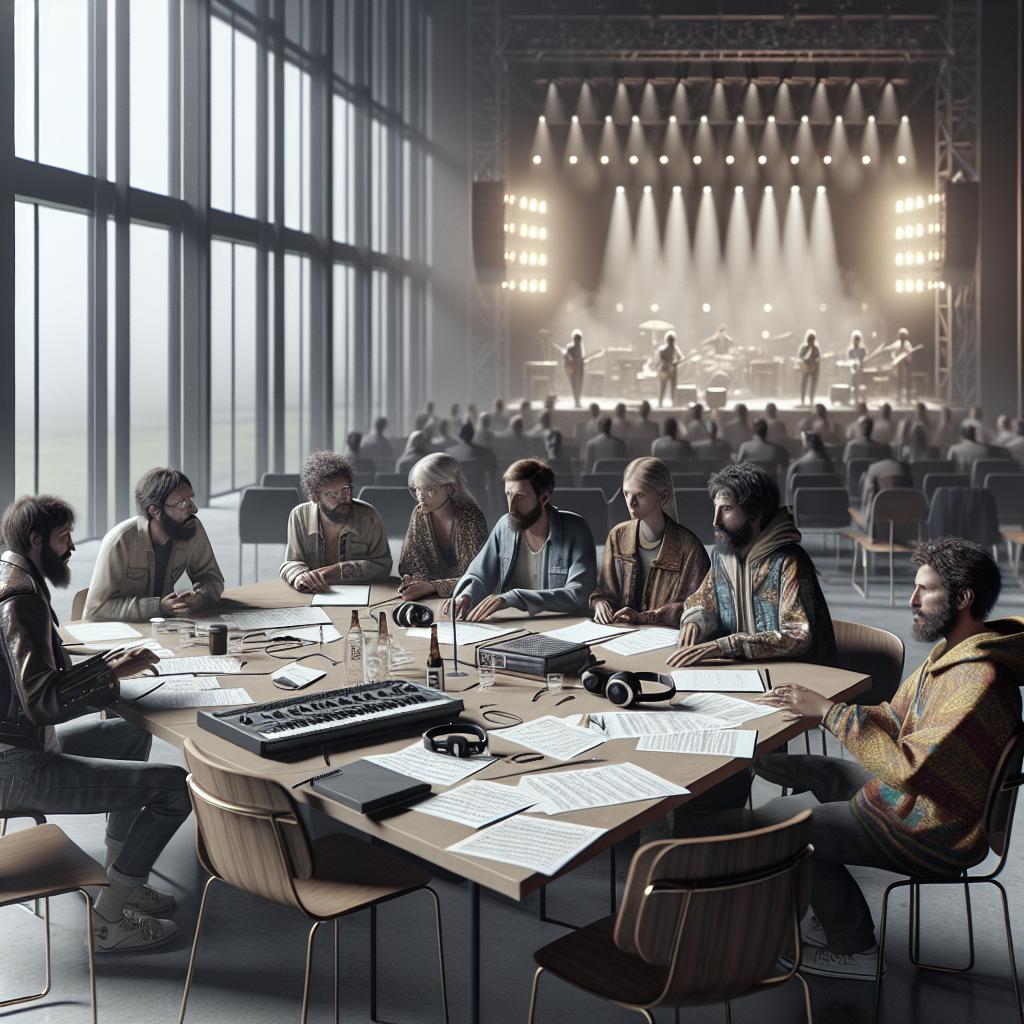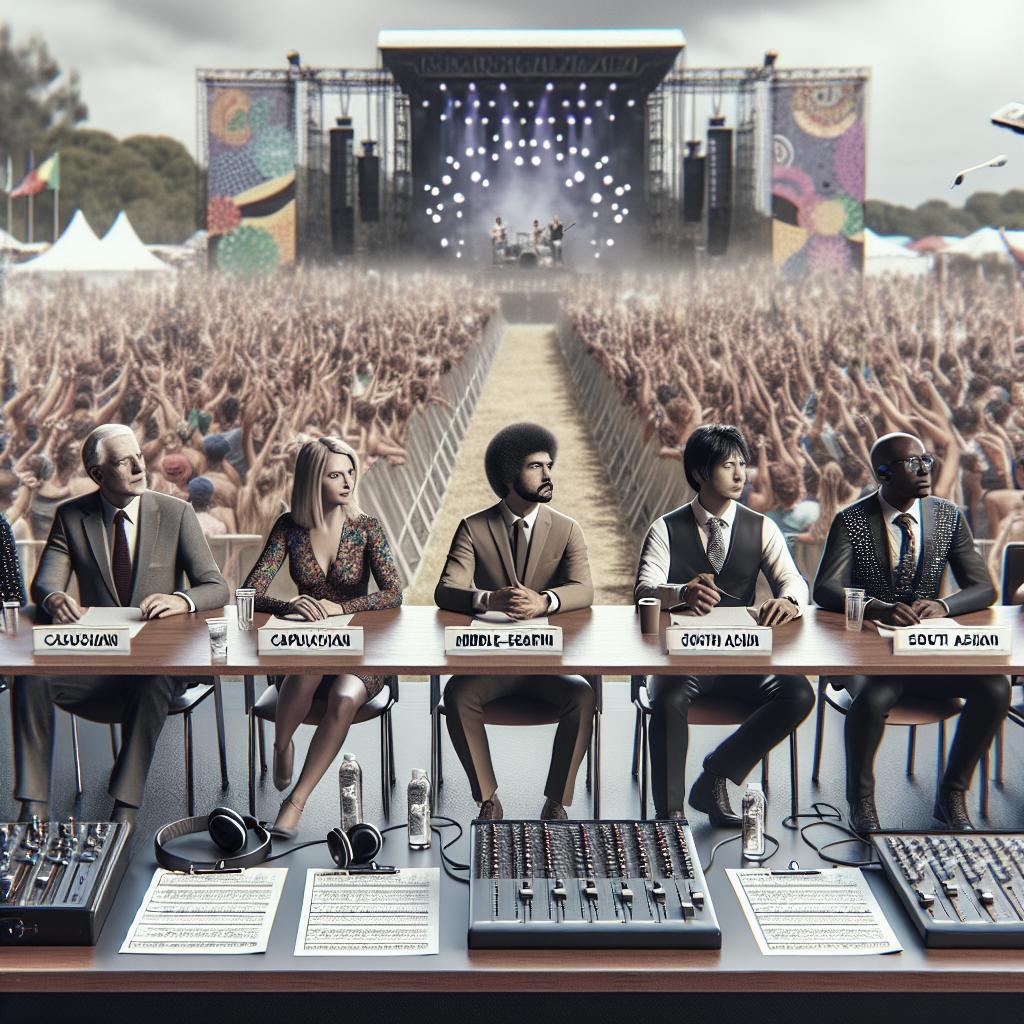<>
When it comes to music festivals, the excitement doesn’t merely reside on the stage — it extends to the jury room where the daunting task of picking winners takes place. This blog post delves into the intricate process of how music festival juries deliberate. Specifically, we’ll look at what happens if I were leading a jury, the essential step of picking a foreperson, the importance of a warm-up including icebreakers, setting goals, and establishing ground rules. From there, we’ll tackle key questions, conducting test votes, discussing different elements, and nailing down final confirmations. Finally, tips for the foreperson and a discussion of the inherent challenges will encapsulate our exploration of this fascinating behind-the-scenes process.If I was leading a jury
If I were leading a music festival jury, my primary focus would be on fostering an environment of respect and collaboration. As the jury head, it would be crucial to make sure that each member feels valued and heard. I would start by establishing a rapport with my team through direct conversations to understand their preferences and expectations. Building trust is essential, and it helps to lay the groundwork for constructive discussions and fair evaluations. Moreover, I would emphasize clarity and structure in our deliberations. This involves setting a clear agenda for each meeting and ensuring that we stay on track. In addition, I would encourage open dialogues where diverse opinions are not only welcomed but seen as critical in enriching our collective judgment. By doing so, I’d ensure that our final decisions are balanced and equitable.
Pick a foreperson
The role of the foreperson is pivotal in facilitating a smooth and effective deliberation process. Selecting the right individual for this role requires keen observation and understanding of the jury’s dynamics. A foreperson should possess a blend of strong leadership, impeccable communication skills, and impartiality. Above all, they should be someone who can manage time efficiently and mediate discussions without inserting personal biases. In choosing a foreperson, it’s crucial to consider the diverse skill set and experience of the candidates. Ideally, the person selected should be someone who has a track record of teamwork and conflict resolution. Equally important is their ability to remain composed under pressure and to synthesize varied viewpoints into a coherent narrative that the entire jury can stand behind.
Warm-up
Icebreaker
Kicking off deliberations with an icebreaker helps to loosen the atmosphere and build camaraderie among jury members. A simple exercise, like sharing a memorable concert experience, can serve as an effective conversation starter. This not only lightens the mood but also allows members to understand each other’s musical tastes and backgrounds. Another engaging icebreaker could be a quick, fun quiz about music trivia or past festival highlights. The goal here is to create an environment where everyone feels comfortable voicing their opinions. Establishing this early on can significantly impact the tone and productivity of the subsequent discussions.
Goal
Clearly defining the goal of the deliberation process is vital. A concise and shared understanding of what the jury seeks to achieve helps focus efforts and minimizes distractions. The primary goal is to evaluate performances based on predefined criteria and to select the most deserving participants who excel in meeting these metrics. To ensure alignment, the goal should be repetitively emphasized throughout the deliberations. Setting smaller, incremental objectives, such as narrowing down finalists in each category or achieving consensus on key attributes, can further break down the task and make the overall goal more attainable.
Ground rules
Establishing ground rules at the outset ensures a fair and respectful deliberation environment. These rules could include guidelines for interrupting, the length of individual speaking turns, and appropriate ways to disagree. Ground rules serve as a reference point to resolve conflicts and maintain decorum during heated discussions. Equally important is the adherence to confidentiality. The proceedings of a jury deliberation should remain private to ensure that candid opinions and critical assessments are not influenced by external pressures. These ground rules, when consistently applied, help in maintaining a structured and respectful deliberation process.
Tackling the Questions
Do a test vote
Before diving into the intricate details of each performance, conducting a test vote can set the baseline for subsequent discussions. This non-binding vote helps to gauge initial inclinations and surface any strong opinions or biases that could influence the final evaluations. It also serves as a diagnostic tool to identify areas where more focused discussion may be needed. A test vote prompts jury members to commit to preliminary assessments, making them more thoughtful about their judgments. It’s also an excellent way to highlight differences in opinion early on, which can be systematically addressed through structured discussions.
Discuss the elements
Breaking down the performances into key elements — such as technical skill, stage presence, originality, and overall impact — facilitates a more systematic evaluation. Each juror can weigh in on these specific aspects, providing a multi-faceted analysis that contributes to a well-rounded final judgement. Detailed discussions on each element can help balance subjective impressions with objective criteria. By focusing on individual components, the jury can avoid being swayed by emotional responses and ensure that the deliberation is comprehensive and fair. Expertise of each juror can come to the fore during these detailed analyses, enriching the group’s understanding and final decision.
Confirmation
Once all performances have been discussed and dissected, the final step involves confirming the tentative decisions. This can be done through another round of voting, but this time it’s binding. Ensuring that everyone has had ample opportunity to express their views is crucial at this stage. The goal is to reach a consensus, or at the very least, a majority decision that the entire jury can stand behind. Confirmation meetings should be thorough but swift, aiming to finalize decisions efficiently. If disagreements persist, the foreperson’s role becomes critical in mediating these conflicts and steering the jury towards a conclusion that respects the majority’s viewpoint while considering dissenting opinions.
Foreperson tips
A foreperson’s role extends beyond merely facilitating discussions; they are the linchpin that holds the jury together. To excel in this role, a foreperson must be adept at active listening and capable of summarizing different viewpoints succinctly. They should frequently check in with quieter members to ensure that everyone’s voice is heard. Time management is another critical skill. Ensuring that the deliberation stays on schedule while still allowing for in-depth discussions can be a balancing act. The foreperson should prepare an agenda, maintain a timeline, and be adaptable to the flow of the discussion. Lastly, an effective foreperson remains impartial, focusing on guiding the jury to a fair and justified outcome.
Tough job
Deliberating as a part of a music festival jury is far from a straightforward task. It involves a balancing act of subjective tastes and objective criteria. Moreover, the responsibility of making or breaking an artist’s career can weigh heavily on the shoulders of jurors. The emotional investment required is immense, and the pressure to get it right is ever-present. Despite its challenges, the role is incredibly rewarding. The fulfillment of discovering fresh talent and contributing to their journey is unparalleled. The camaraderie formed among jurors and the opportunity to engage deeply with music are additional benefits that make this tough job truly worthwhile.
Next steps
Through a better understanding of the deliberation process, jurors can create a more fair and efficient system for evaluating talent. With clear roles, effective communication, and a detailed evaluation framework, the jury can ensure that their choice of winners reflects not only popular opinion but also genuine musical prowess.
| Section | Summary |
|---|---|
| If I was leading a jury | Fostering a collaborative and respectful environment, emphasizing clarity and structure. |
| Pick a foreperson | Choosing an impartial, efficient, and communicative leader to steer the jury’s deliberations. |
| Warm-up | Using icebreakers, setting clear goals, and establishing ground rules for effective deliberation. |
| Tackling the Questions | Conducting test votes, discussing performance elements, and confirming final decisions. |
| Foreperson tips | Key skills for forepersons include active listening, time management, and impartial guiding. |
| Tough job | Balancing subjective tastes with objective criteria under high emotional and professional stakes. |


